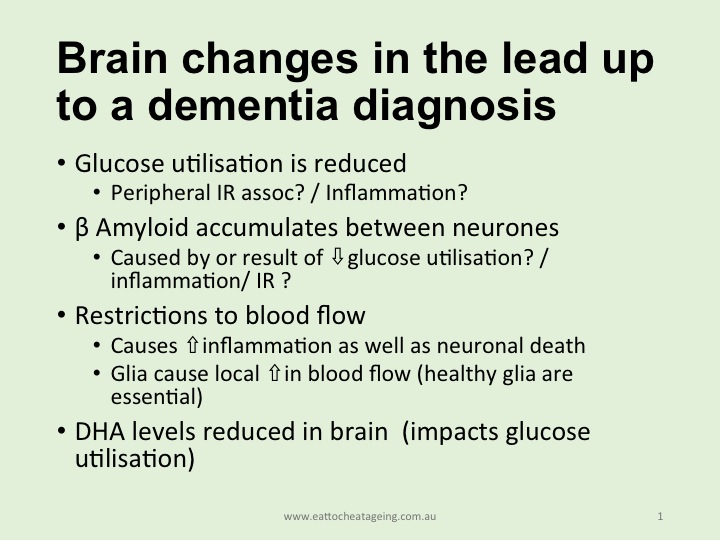Eat to cheat dementia Presented by Ngaire Hobbins, APD


There are more than 353,800 Australians living with dementia. This number is expected to increase to 400,000 in less than five years. The good news is that lifestyle can have an effect not only on the prevention of dementia but also in aiding the maintenance of health so the disease progression is slowed.
In her presentation Ngaire looks in detail at the brain changes which occur prior to a diagnosis of dementia and dietary strategies which could potentially protect against these changes. As we all know, adequate protein intake in older people can be challenging. The reduction of muscle mass is a significant risk factor for dementia, a combination of reduced physical activity and an inadequate protein intake.
Ngaire explains that eating for brain health differs depending on age. For younger adults the most current health messages are fine - anything that supports cardiac health also supports brain health. But for older adults, weight loss, reduced physical activity and inadequate protein can worsen both cognitive and physical health.
Ngaires message is not anti-ageing, it is about ageing well.
About the presenter:
Ngaire is an experienced dietitian who, for more than 30 years, has enjoyed a variety of roles, including food industry consulting, nutrition communications and community and clinical dietetics. A time spent in community care some years ago led into geriatrics, an area of nutrition about which she has developed a passion. After the success of her first book Eat to Cheat Ageing (2014), Ngaire has recently published a follow-up, Eat to Cheat Dementia (2016). This book examines what we can do to reduce our chances of cognitive decline and dementia, and also provides nutritional information for those living with a dementia diagnosis and the people who care about them.
To purchase Ngaire's webinar Eat to cheat dementia and associated documents click here